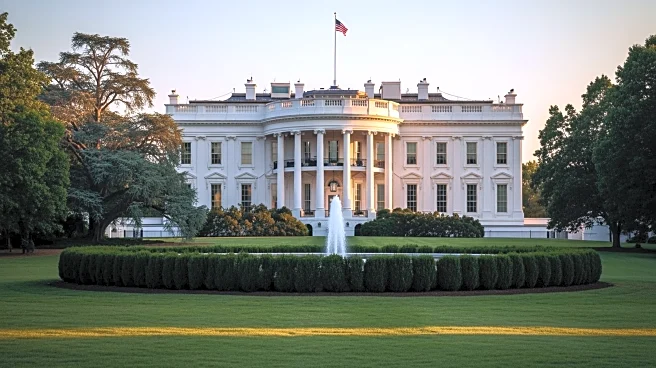What's Happening?
President Trump has invited 20 Israeli hostages, recently freed from Hamas captivity, to the White House. The hostages were released on October 13 under a ceasefire agreement brokered by the United States
between Israel and Hamas. The group includes individuals such as Eitan Mor, Omri Miran, and others who spent over two years in captivity. Trump plans to send a special aircraft to bring them to Washington for a meeting scheduled on November 20. This gesture is part of Trump's ongoing efforts to support survivors of Hamas captivity, having previously hosted multiple meetings with former hostages at the White House.
Why It's Important?
The invitation to the White House signifies the U.S. commitment to supporting Israel and its citizens affected by the conflict with Hamas. It highlights the role of the U.S. in facilitating peace agreements and underscores the importance of diplomatic relations between the two nations. The meeting aims to provide a platform for the hostages to share their experiences and receive recognition for their resilience. It also reflects President Trump's focus on foreign policy and his administration's efforts to strengthen ties with Israel.
What's Next?
Following the White House meeting, the hostages are expected to travel to Miami to meet with Trump's special envoy, Steve Witkoff. This visit may further solidify diplomatic relations and provide opportunities for discussions on future peace initiatives. The U.S. may continue to play a pivotal role in mediating between Israel and Hamas, with potential implications for broader Middle East peace efforts. The meeting could also lead to increased public awareness and support for hostages and their families.
Beyond the Headlines
The invitation to the White House may have cultural and symbolic significance, representing hope and healing for the hostages and their families. It highlights the human aspect of international diplomacy and the importance of addressing the needs of individuals affected by conflict. The event may also influence public perception of U.S. foreign policy and its impact on global peace efforts.










